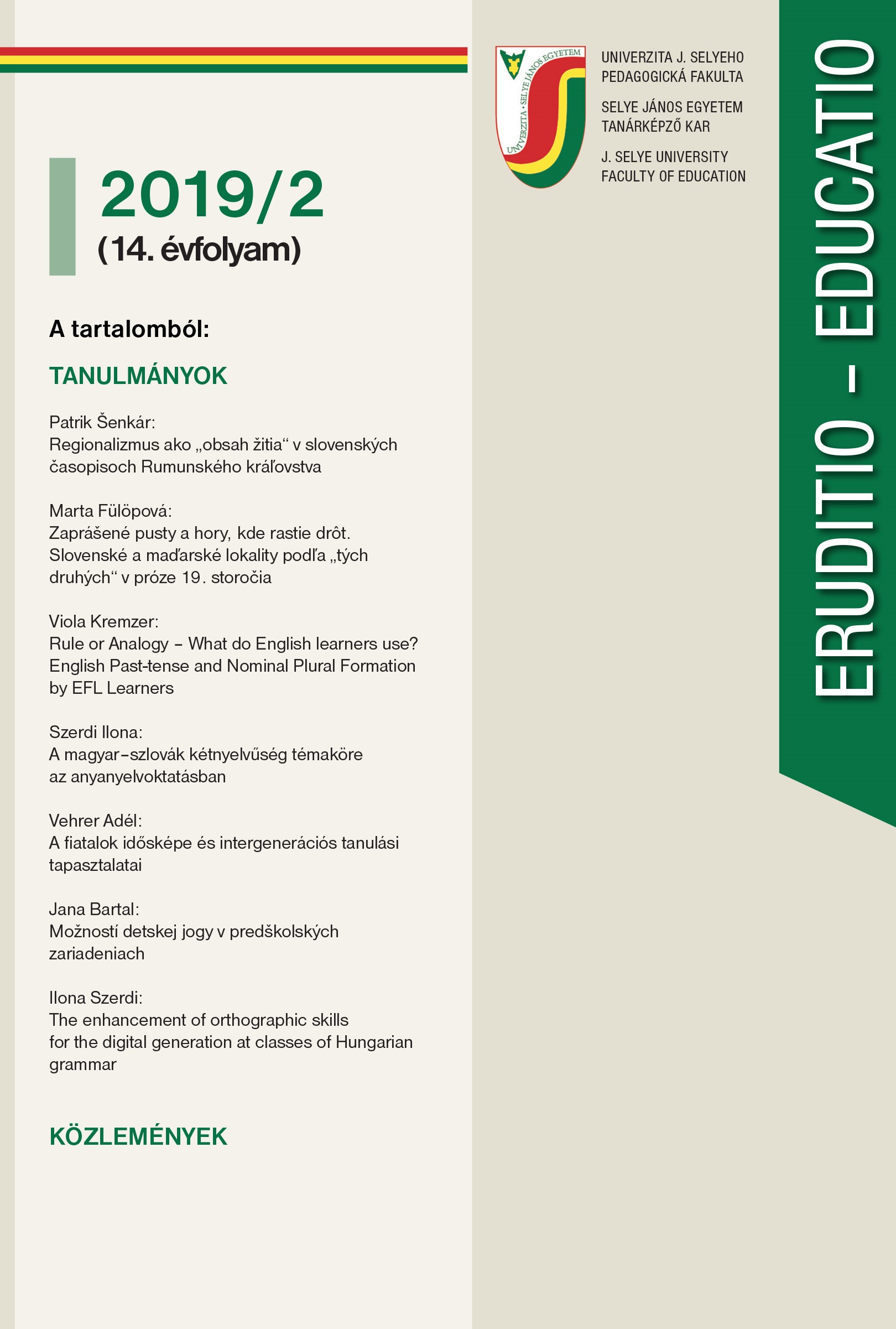Rule or analogy – What do English learners use?
Rule or analogy – What do English learners use?
English Past-tense and Nominal Plural Formation by EFL Learners.
Author(s): Viola KremzerSubject(s): Language and Literature Studies, Applied Linguistics, Language acquisition
Published by: Pedagogická fakulta Univerzity J. Selyeho
Keywords: analogy; rule; EFL learners; past tense formation; plural formation;
Summary/Abstract: As a result of continuous improvement in language education, creativity has become a focal point in foreign language (FL) teaching and research. Analogies in English have helped students acquire language elements based on similarities more easily and creatively. Analogies and rules used by EFL learners have been investigated for decades to see what type of psycholinguistic processes learners go through in creat-ing possible solutions to grammar tasks (Ambridge, 2010; Berko, 1958, Daelemans & van den Bosch, 2005; Pinker, 1999).The present study is a psycholinguistic analysis of English past tense and plural forma-tion based on a nonceprobe experiment implemented in two classes of 12th graders at a Hungarian high school. Participants were eleven English as a First Foreign Lan-guage (EFL1) and seven English as a Second Foreign Language (EFL2) learners. To examine the application of grammatical rules and phonological analogies in the Hun-garian context, I conducted a small-scale study guided by three research questions. The first two questions focused on the extent to which rules and analogies influenced students’ past tense and nominal plural formation, and the third research question on the difference between the solutions given by the two groups.Findings show that plural formation and past tense formation by EFL1 and EFL2 learn-ers follow the dual-route approach, reflecting participants’ two-way psycholinguistic processing. The EFL1 group applied rules and analogies with greater accuracy. How-ever, the EFL2 team members tended to overirregularize past tense forms or over-generalize applicable suffixes. The present research could help research the learning process of English past-tense and plural formation by EFL1 and EFL2 learners.
Journal: Eruditio - Educatio
- Issue Year: 14/2019
- Issue No: 2
- Page Range: 31-48
- Page Count: 18
- Language: English

